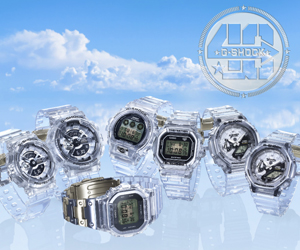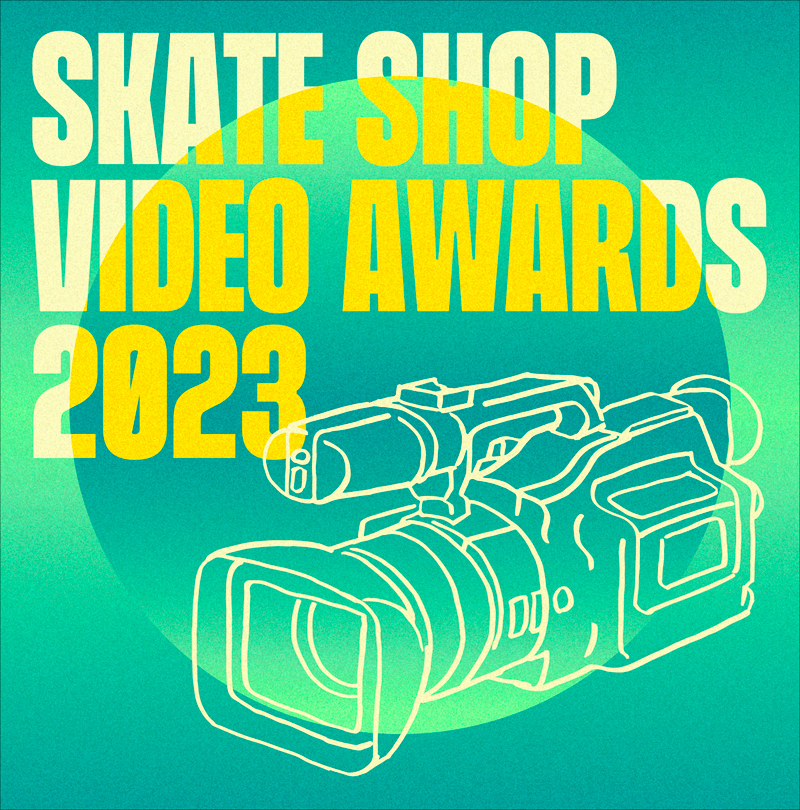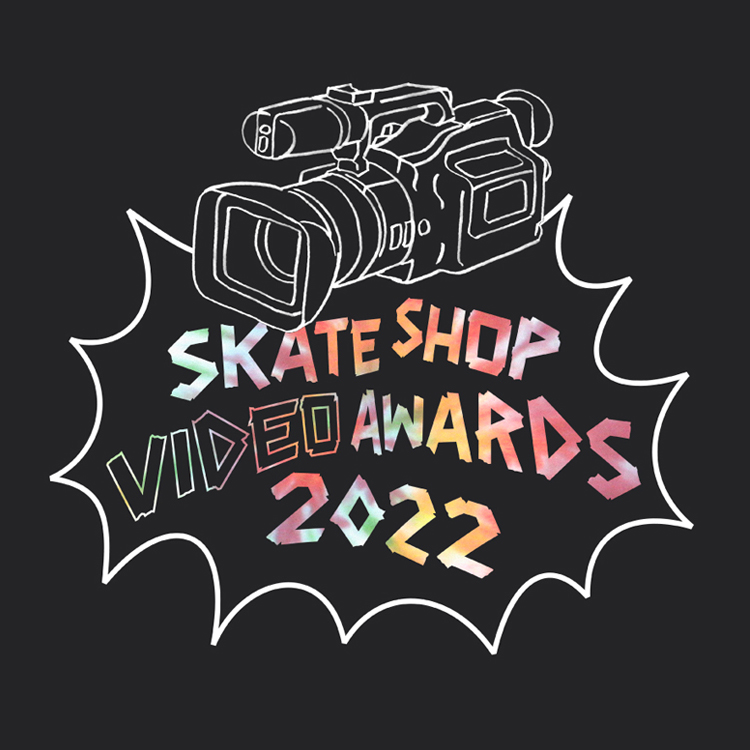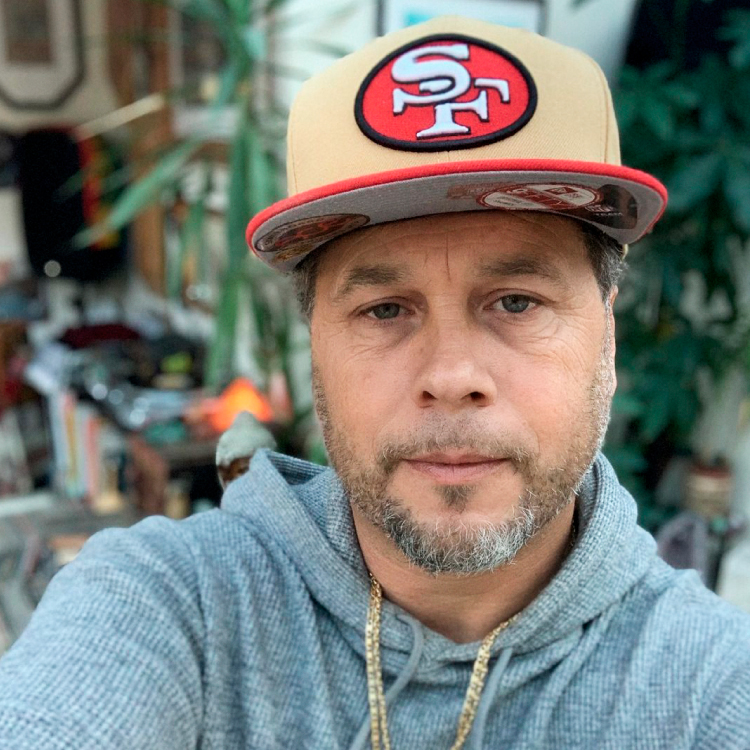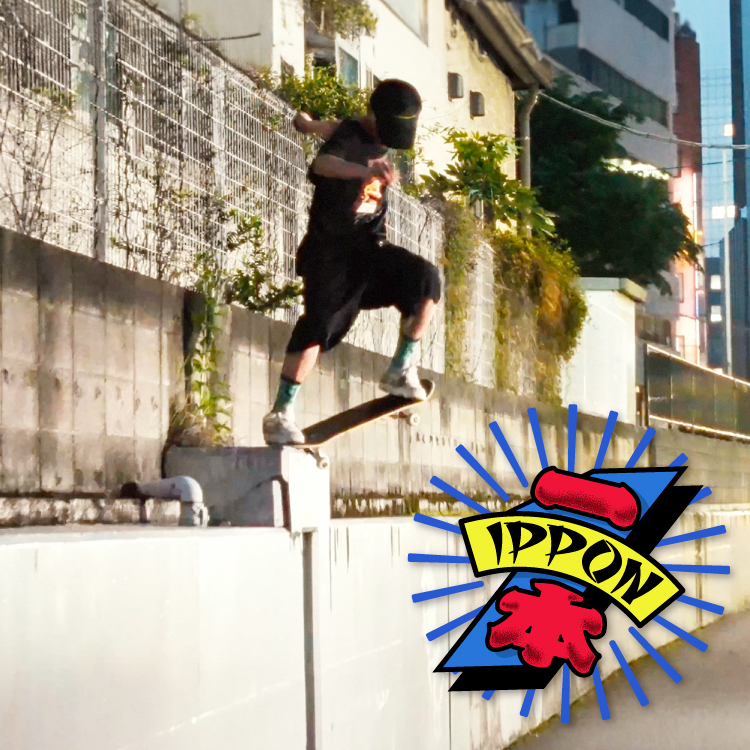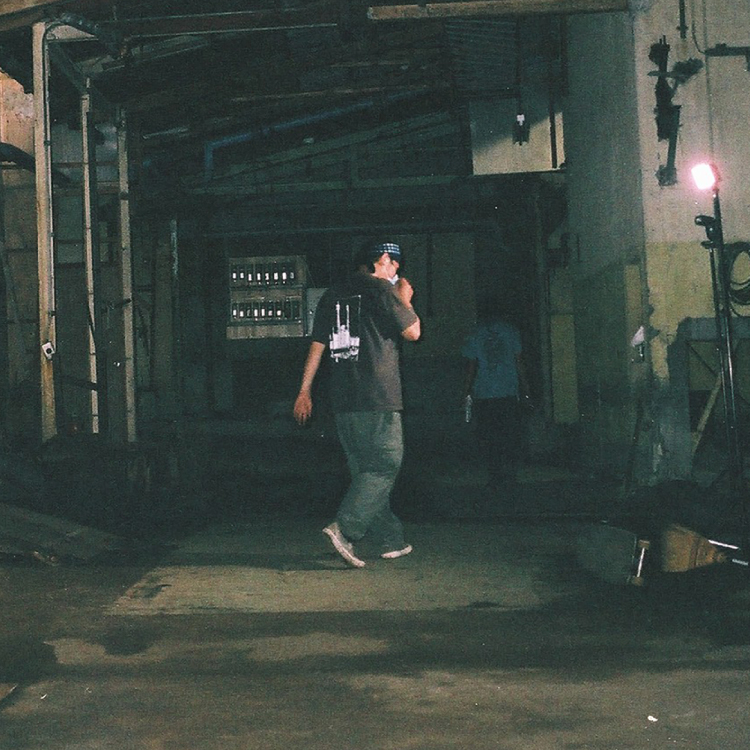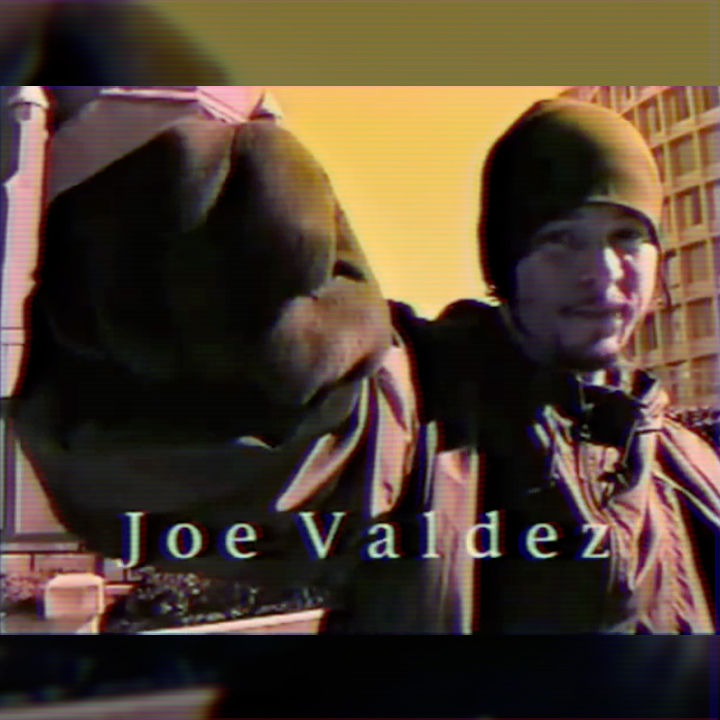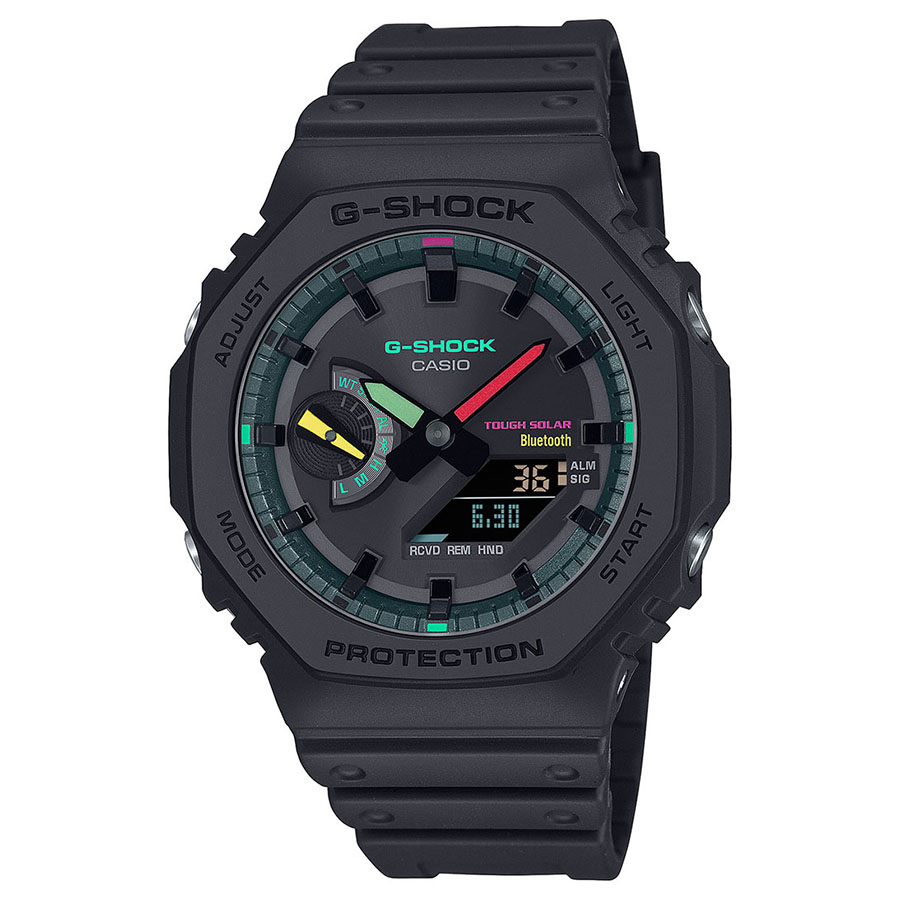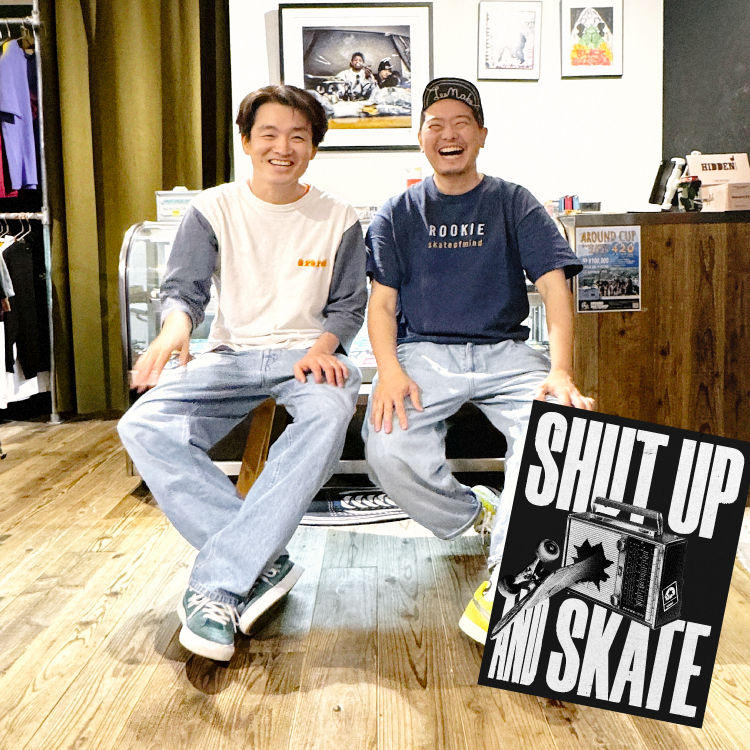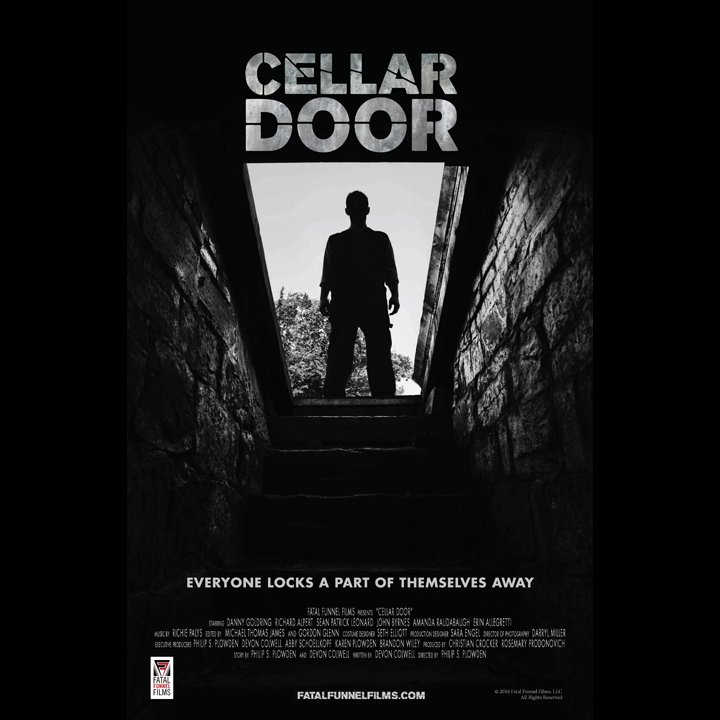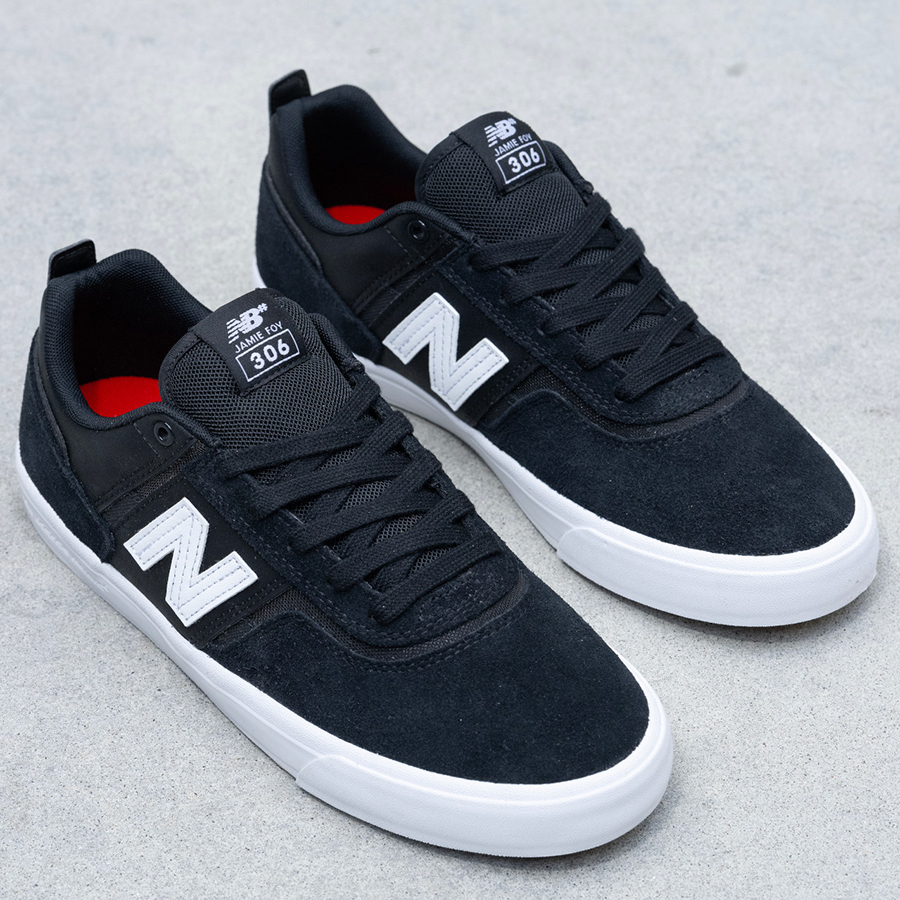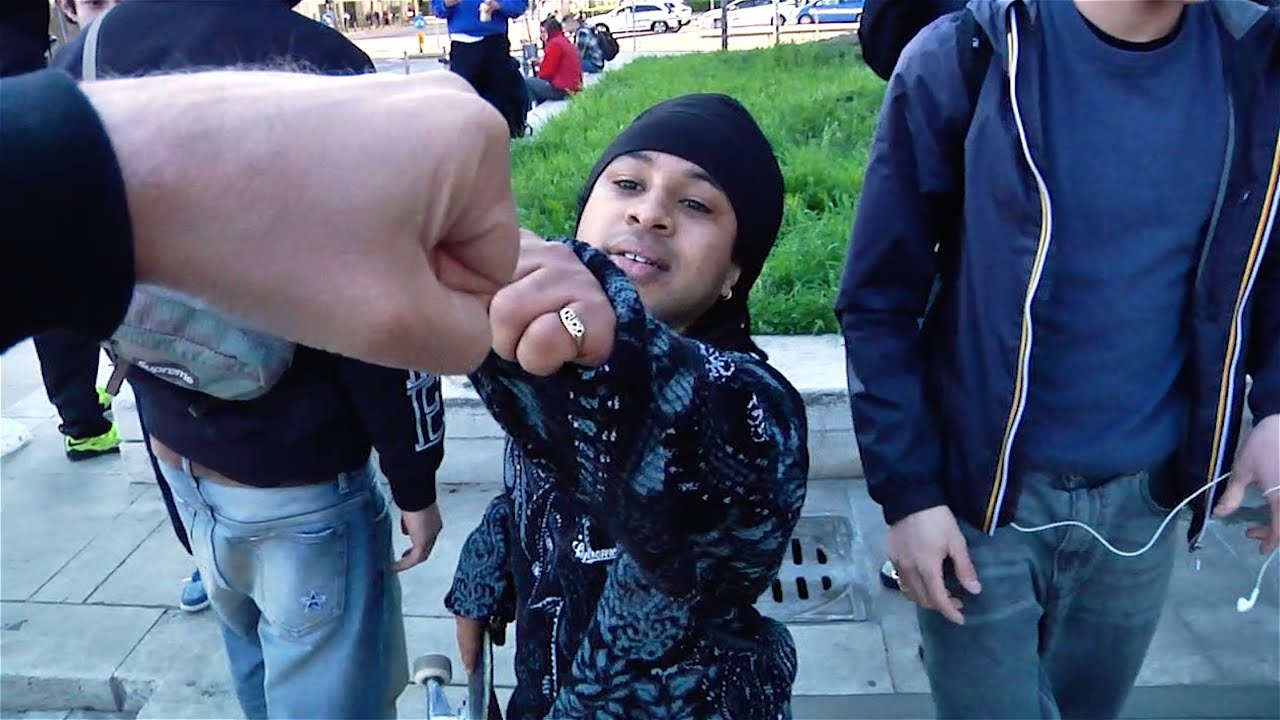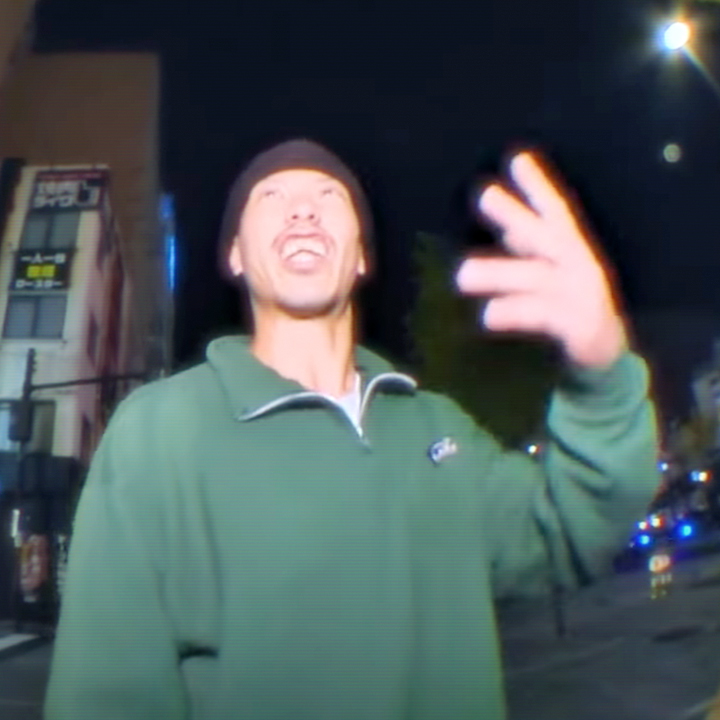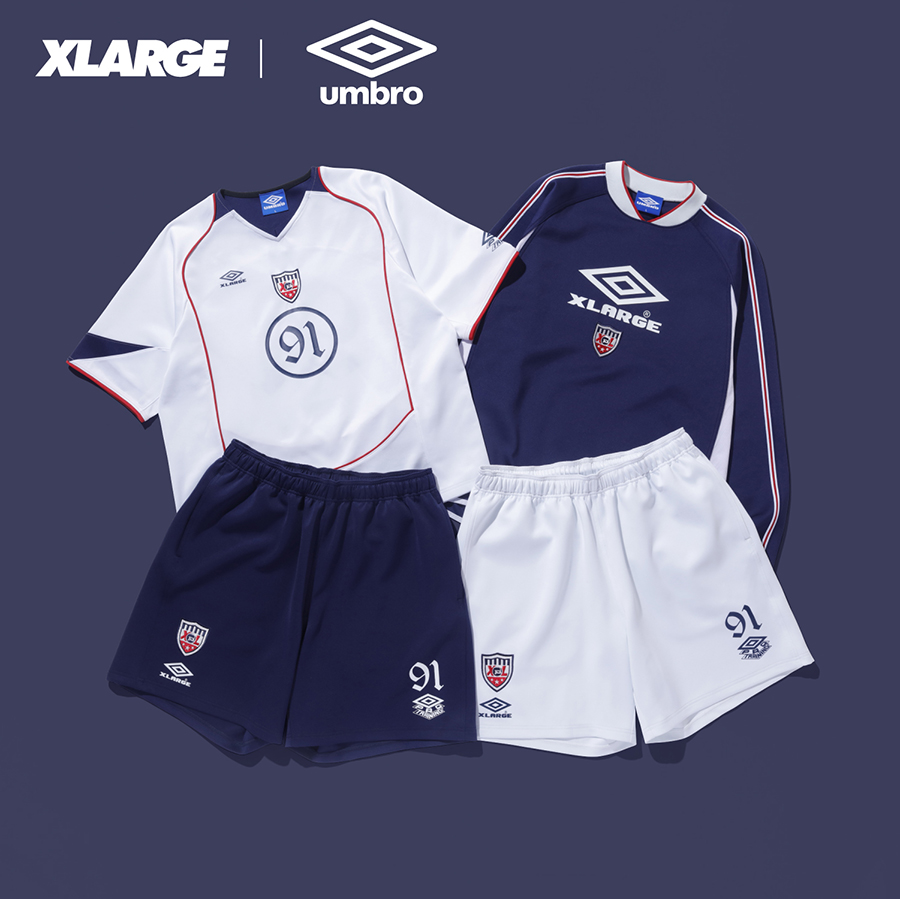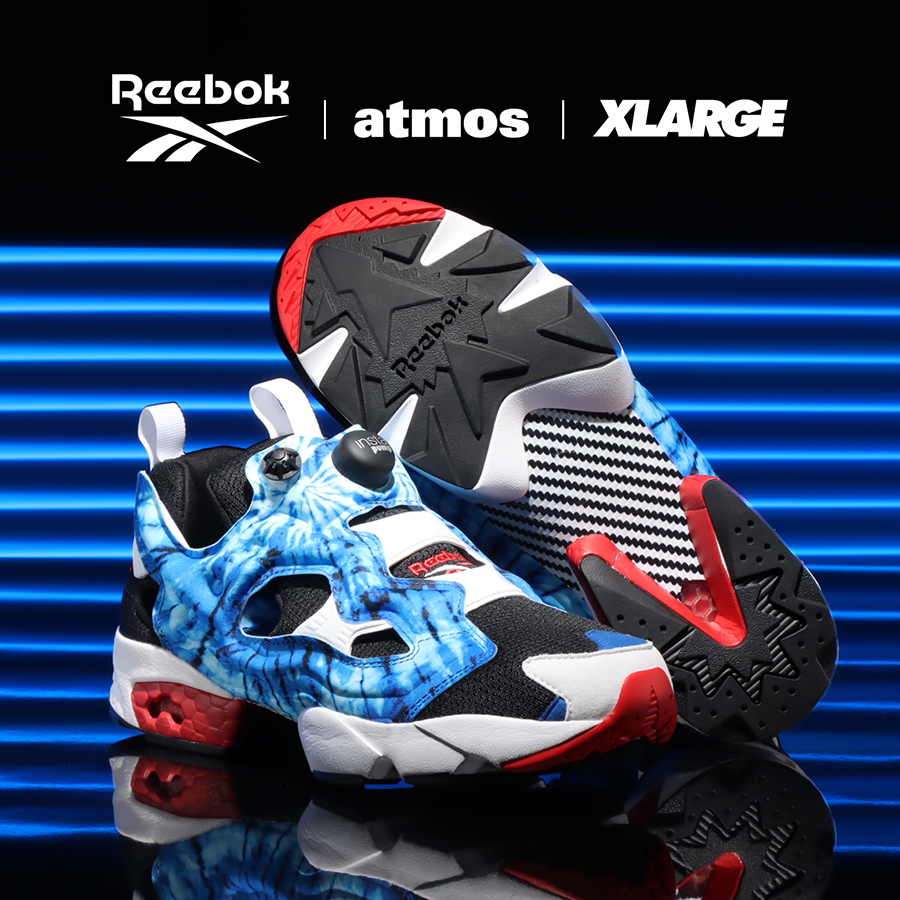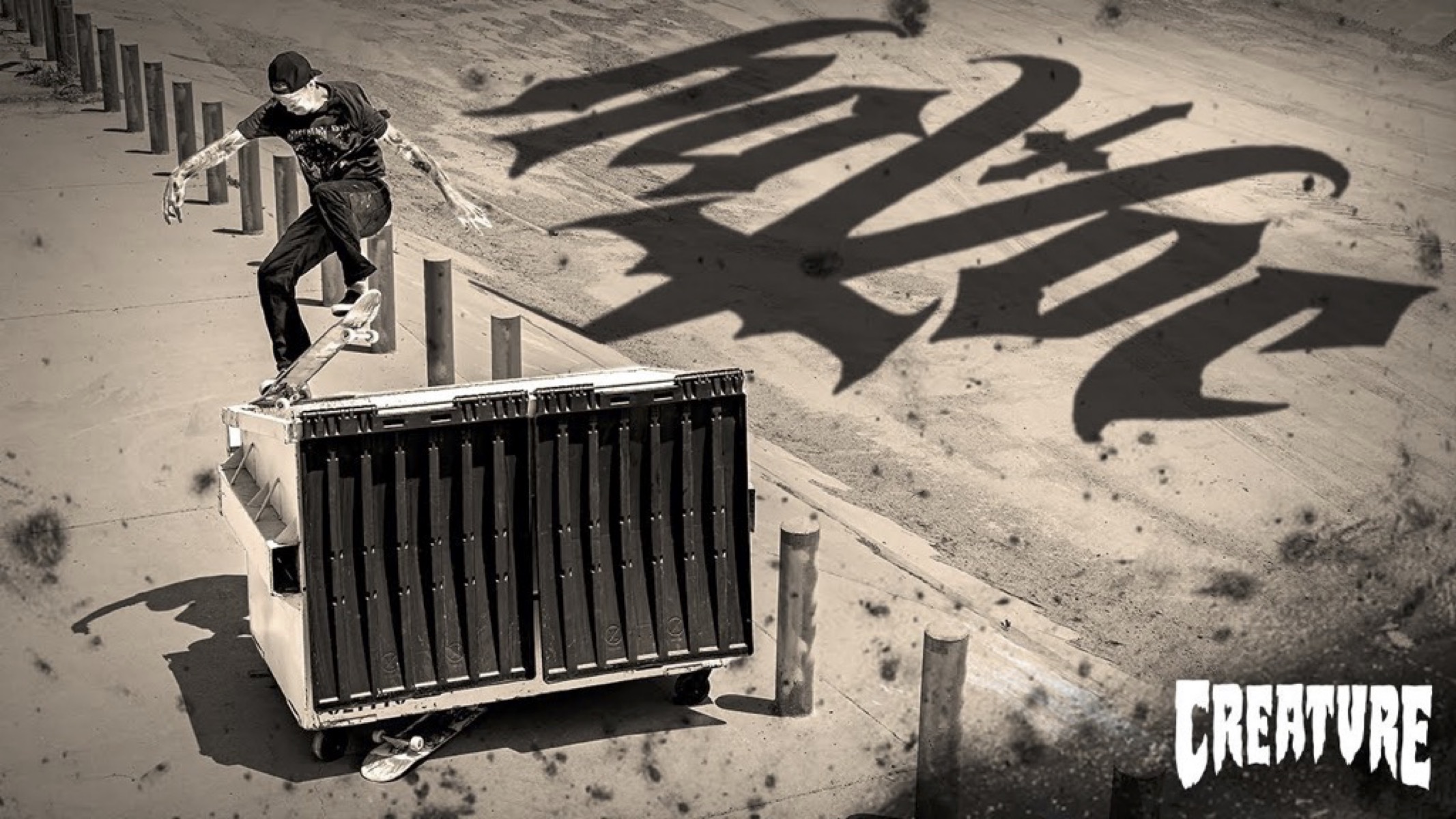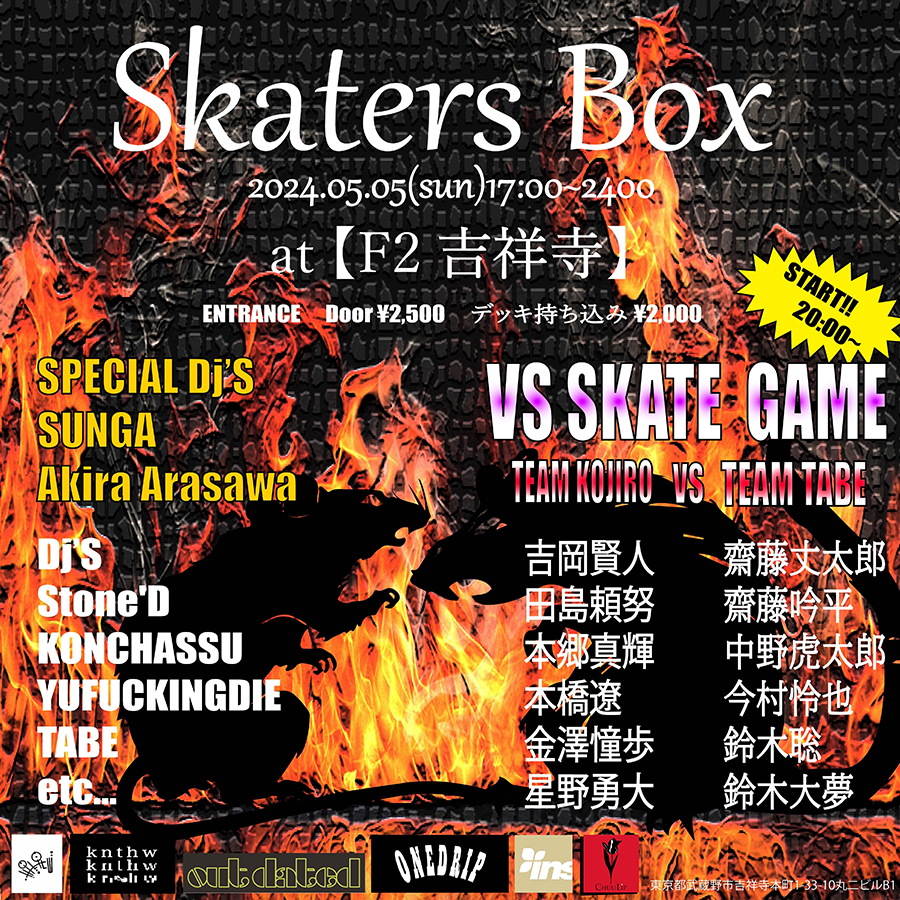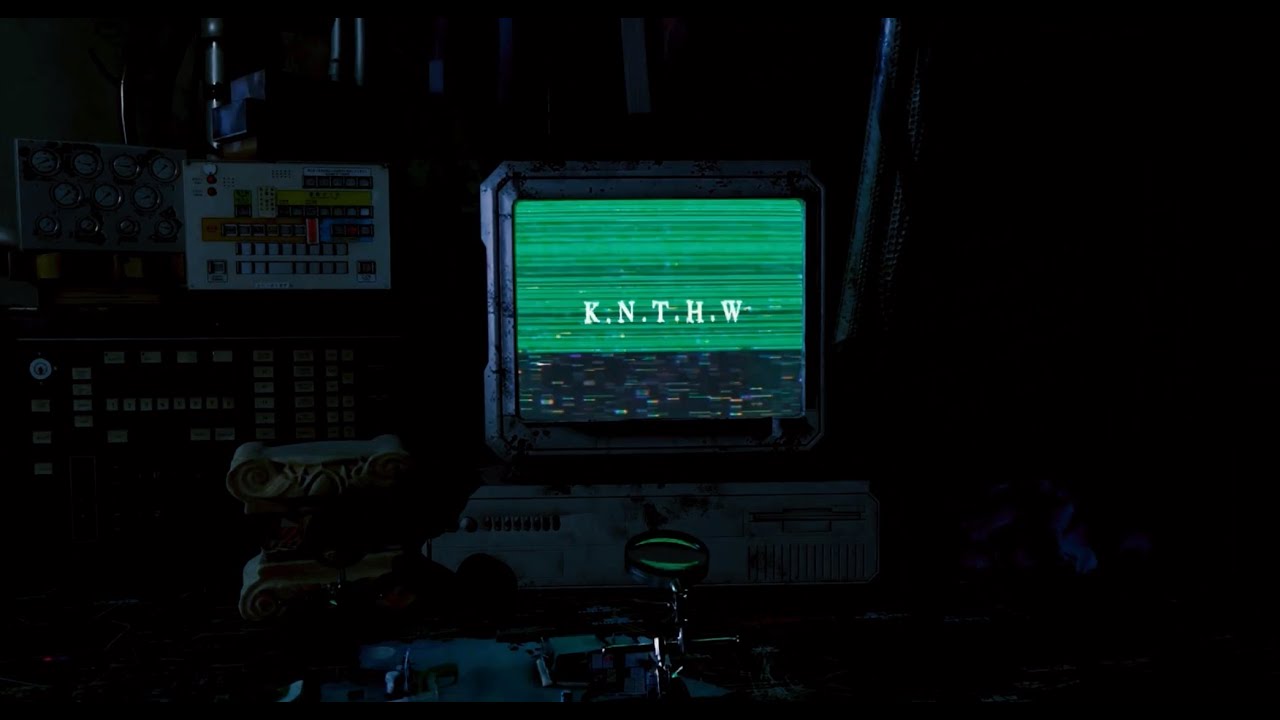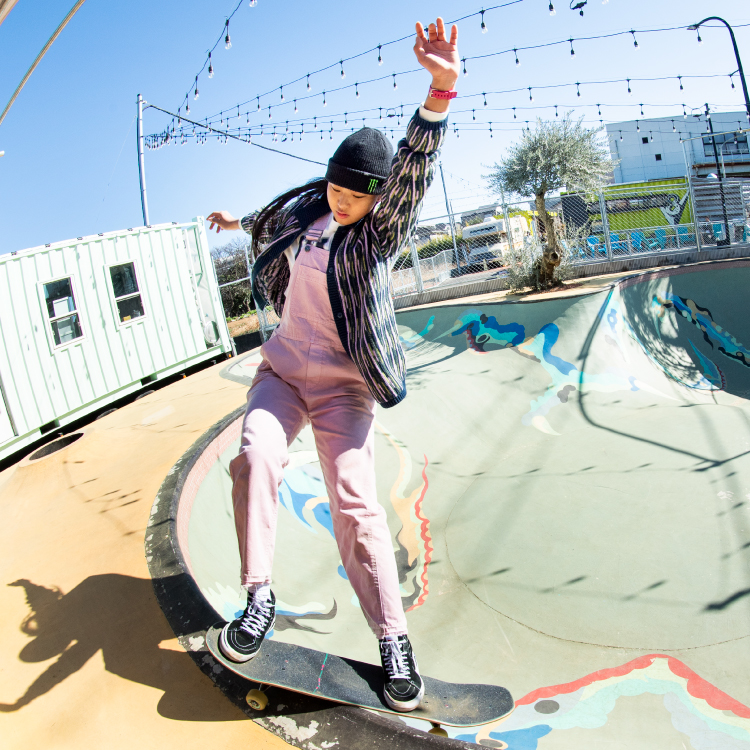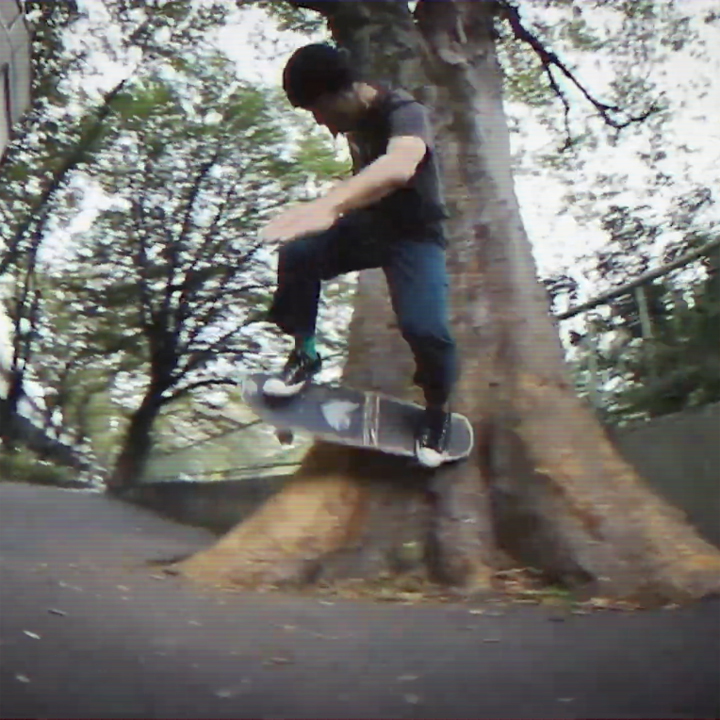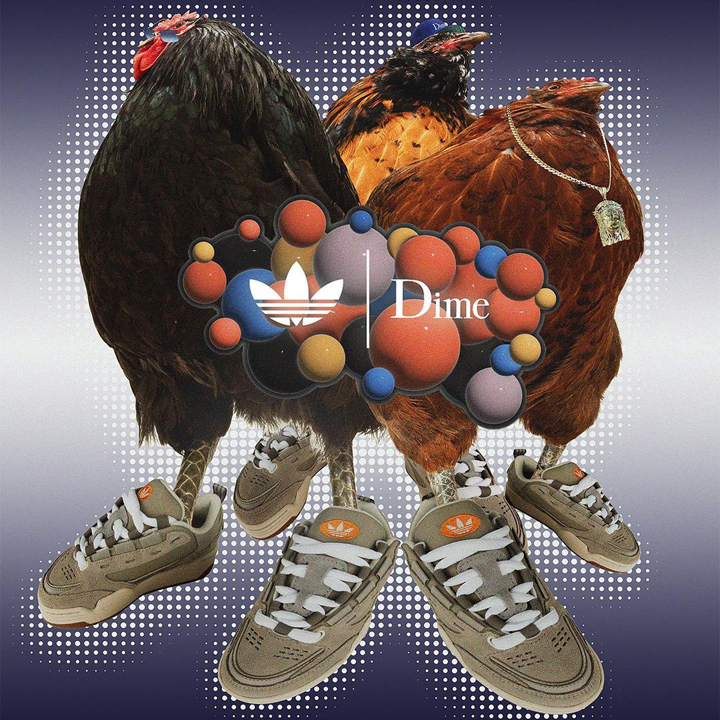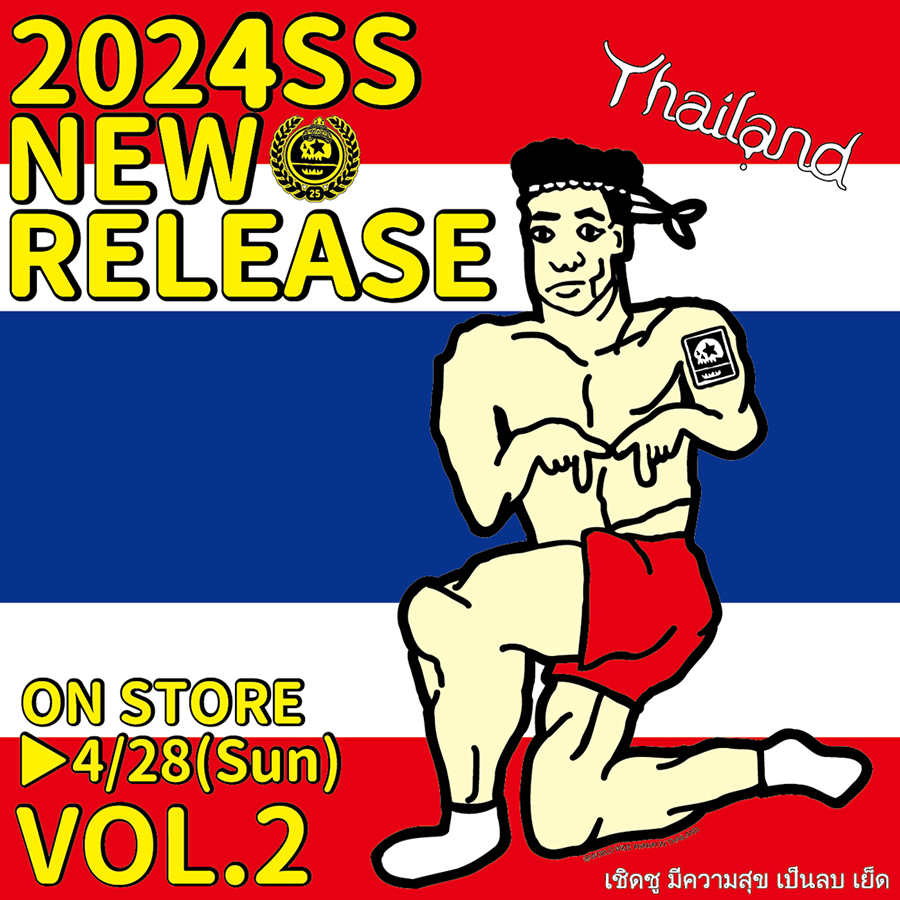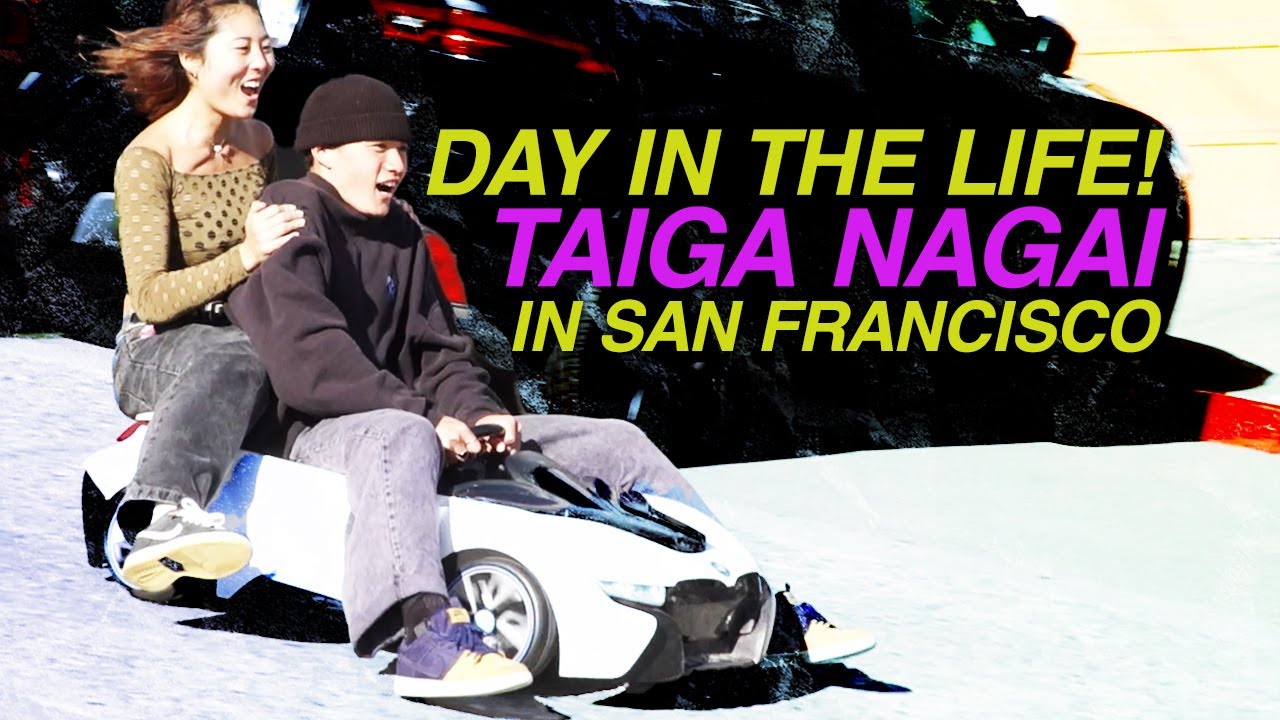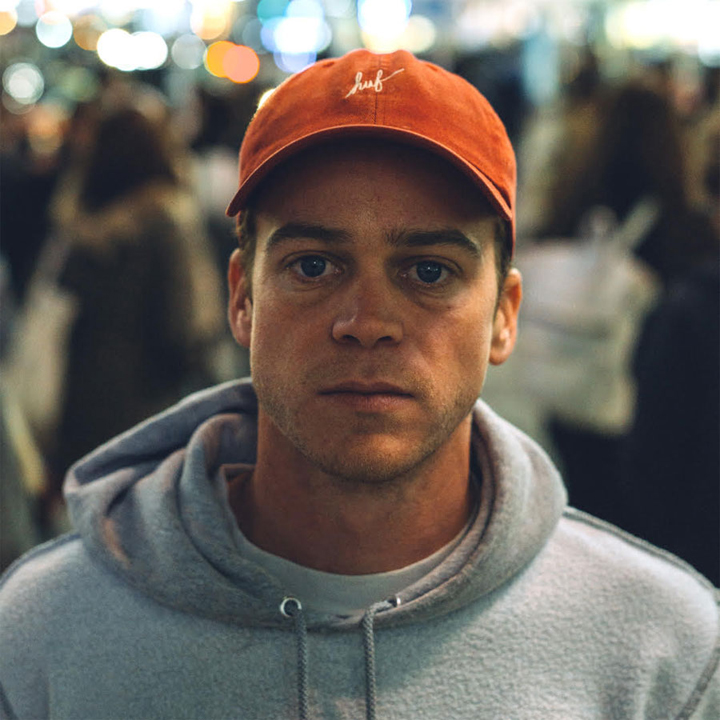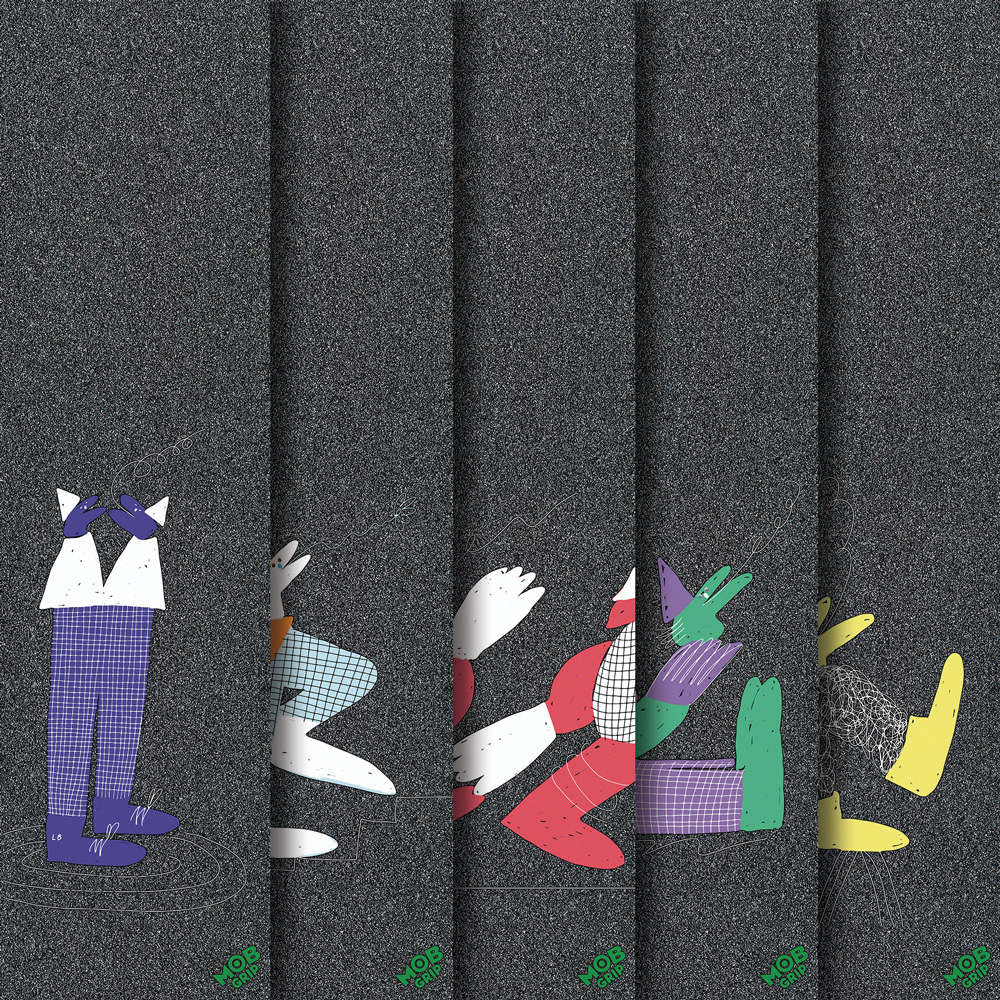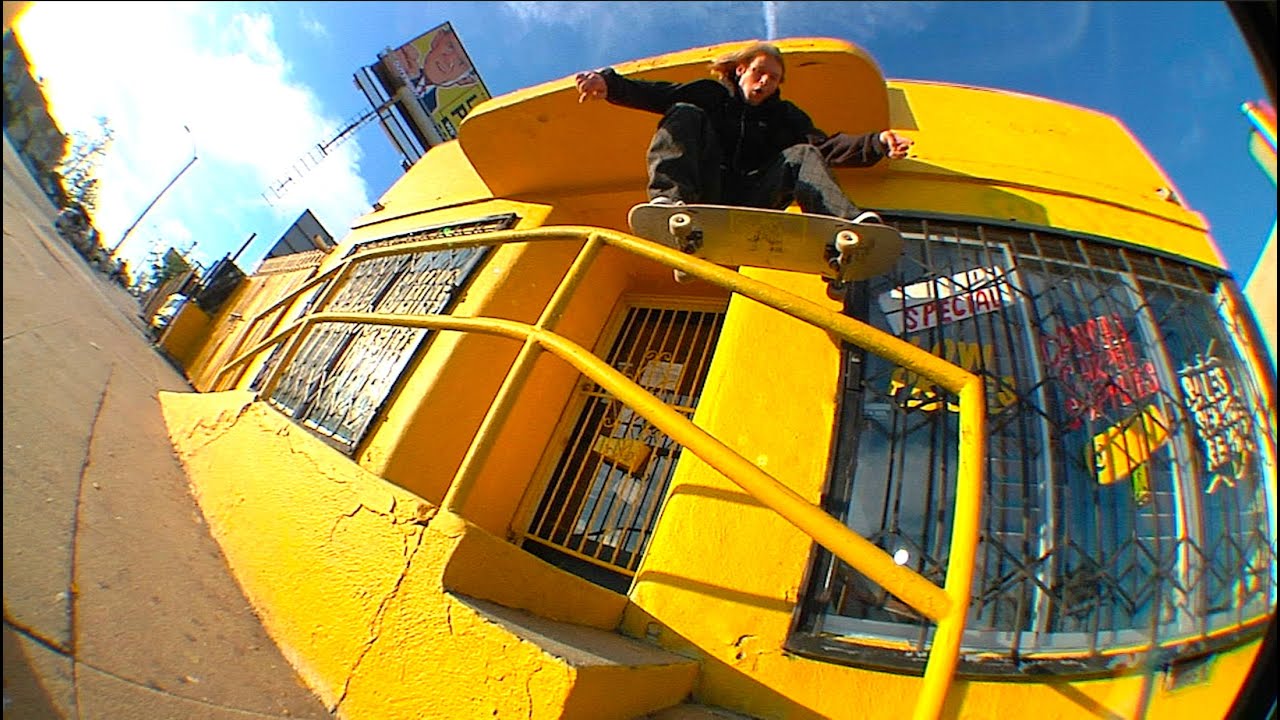Dan Mancina regained his skate life after facing a genetic disorder of the eyes that causes loss of vision. This is a story of a man who overcame one of the worst struggles in life.
──DAN MANCINA (ENGLISH)
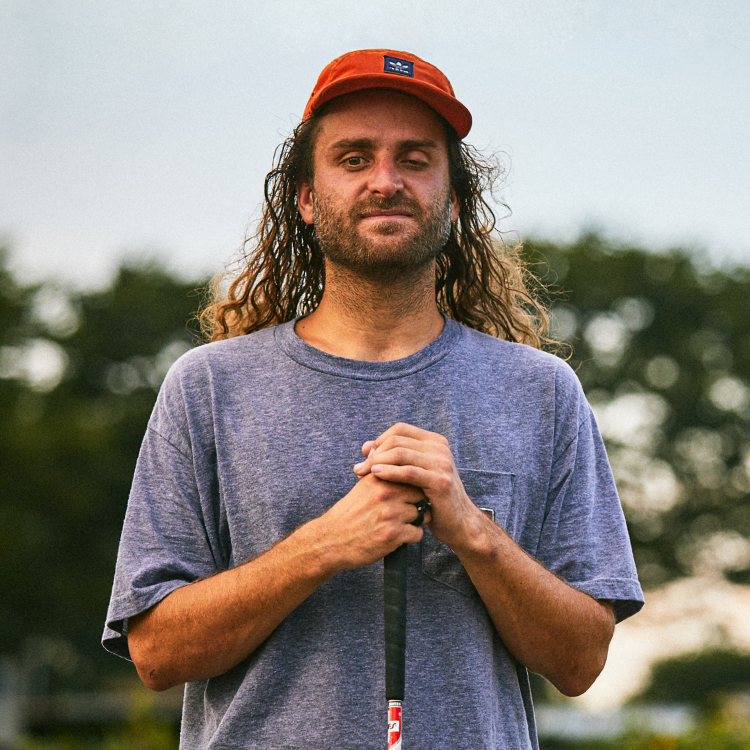
[ JAPANESE / ENGLISH ]
Photo_Junpei Ishikawa
Special thanks_adidas Skateboarding
VHSMAG (V): Where are you from and where do you currently live?
Dan Mancina (D): I come from Michigan. That's also where I live right now. A little city outside of Detroit.
V: How did you start skating?
D: Well, I started pushing around when I was young, like seven. A cousin of mine used to skate. And then I used to snowboard a lot. And then I read in a snowboard mag that during the summer you can skate to keep your snowboarding on point, and then it just kind of took over from there. So really skating since I was 13.
V: I heard that you found out about your disease when you were 13. You knew that you were going to eventually lose your vision. Can you talk about your disease?
D: So I was diagnosed with my disease. It's called retinitis pigmentosa or RP. It's a degenerative hereditary disease. So it's a slow deterioration of your vision throughout time, and it's different for everybody. I found out when I was 13, and at that point it didn't really affect my life. Maybe sometimes at nighttime... It starts with your night vision because it's usually your peripheral vision that goes first. So some things at nighttime would be affected but... I still drove and did everything that a sighted person does. But yeah, I thought about it here and there, but never dwelled on it or let it really affect my life.
V: So it was a slow process?
D: Yeah. It's really different for everybody. I have three older brothers, and two of them have RP as well. And they're older than me, but they still have vision. So it's just individually based how the disease affects you. And I had other eye disorders on top of it that kind of accelerated my vision loss very rapidly. And mid-20s is when it really started to affect my life, where I stopped driving, and I didn't skate anymore for a couple of years, and just other things going on in life. I mean, I had a son and everything. And it's just a whirlwind of things going on. Yeah. That's pretty much my vision loss. And then fast forward, now I'm 32, and I have no vision at all.
V: Probably a couple of years ago you said in an interview you could sense light. You lost about 90% of your vision but you still had five or ten percent.
D: Right. I have no light perception. Pretty much from right around last December is when I lost the remaining of that. I had a little piece of peripheral vision where I could have light perception and shadows, and now it's zero. So it's actually kind of exciting, kind of a relief. I don't have to go to the eye doctors every month. I used to go every month and get a shot in my eye and all this stuff. So kind of a relief in ways and kind of scary going into skating without any vision. But I've progressed in the last few months further than when I had that little bit of sight. So I'm really excited for my next part to come out.
V: You're working on a part?
D: Yeah. Always.
V: Rewinding back to your 20s, when you actually started losing your sight, what was it like knowing about it?
D: When it kind of set in, like, "Oh, this is really happening." I was working in a kitchen cleaning dishes. And then it was all within about two years, when I went from driving to not being able to walk around my block without being with somebody, and kind of thrown into this blind world. A different way to interact with the world. And I had to kind of relearn a lot of things. Lost my identity. And a lot of emotions at that time. Kind of figuring out, who am I now? What can I do for work? How am I going to support my kid? How am I going to live day-to-day life? And then slowly getting some confidence back through a little bit of training called orientation and mobility training, which is using my cane, O&M. And slowly kind of gaining back confidence. And then starting to get my life back and start to do things that I used to do. And then finally realizing I can still live a fulfilled life, and I can still experience... I can still enjoy life without any vision, still get fulfillment out of life. And stop searching for, "what does a blind person do?" And realize, "what does Dan do?" What do I want to do?
V: So you didn't really prepared before you started losing your vision?
D: Yeah. It's not something you think about or prepare for. I definitely thought it would happen later in life.
V: How did going blind change your mindset?
D: In the beginning it's just accepting and kind of grieving. And then kind of going into... I kind of got annoyed with the way people treated me and kind of still do. Special treatment. A lot of pity and sorrow. People are sad when they meet you. And no, I want people just to be happy. So that's kind of what encouraged me to start the Instagram that I had. I started doing little videos that you wouldn't expect a blind person to do, a bullseye in darts or beer pong, table tennis. These random little videos to kind of push back against that stigma that people had for me. And some of that still lingers now. Still dealing with feeling self-conscious about my vision loss, and kind of a little insecure about it. But skateboarding helps me escape that. It gives me a way to present myself to people in a way that gives me control back. Instead of having pity, sorrow, like, "Oh, skateboarder? That's cool. Still doing what he loves." And people are generally happier when they meet me and figure out what I do. It kind of breaks down that barrier of, "Oh, I feel so bad for you," to, "Oh, you're still doing what you love."
V: What made you not stop skating?
D: I definitely stopped. Yeah, for years. Skateboarding was the furthest thing from my mind. I mean, not a skateboarder in any way during my vision loss and throughout life and dealing with these other things. Oh, I guess it kind of came from making these videos, the other videos I was talking about. And then my favorite time to skate is during the fall. And it was fall time, and kind of I decided to build a little skate bench, just out of boredom really, and filmed a little front board on it. Because I didn't really think I could get the satisfaction or the fulfillment out of it that I once did. I didn't think I'd be able to progress. There wasn't a singular time or point at which I decided to do it. I guess it just kind of stemmed from building that box, that little bench, and just grew from there. And just seeing the positive feedback that I got through the video. It got shared on the Tony Hawk Foundation website and stuff. And I was like, "Oh, it's kind of cool." So I filmed a couple more little clips.
V: That's cool.
D: But I mean, it was hard to get back into it because none of my friends, my close, close friends that I grew up skating with, skated anymore. So I didn't really have anybody to go out and skate with. It was kind of a long process of really starting by myself on my own and just skating flat ground. And then I had the Red Bull piece to film a little thing through that. That came from a Jenkem article, and all this stuff that kind of helped push me back into skateboarding and get connected with the skate crew that I'm with now. And finding that crew, people to skate with, is what helped a lot and really got me to get back into the mindset of being a skateboarder and thinking about skating 24/7 again. And it's important, getting encouragement from people like Jim Thiebaud, sending me boards. It means the world to me. Somebody that influential and a company like that that I grew up loving, helped motivate me to keep going. That motivation is huge. And yeah, so it was really just a slow process of getting back into it.
V: Was it from the day one that you restarted skating, you used the cane to know where the obstacles are?
D: Yeah, and at that time I could see shadows. So the tennis courts that I skate on have good contrast. It was the white lines on it. So I was able to kind of guide myself by being able to pick up that white line, which could give me some reference of how to go straight, and then finding the box with my cane. And I can't necessarily see the box. It's almost like there was no dimension to it. It could be painted on the ground for all I know. And the cane gave me the reassurance to know where it's at. And then pop. And then without any sight now, I have to touch the ledge with my hand. Find it with my cane to give me reference of orientation. Then touching it with my hand, I can be more accurate for ledge skating.
V: How do you keep up with the latest skate news?
D: I don't.
V: There's always memory from back in the day when you could see?
D: Yeah. I'm kind of stuck in the '90s or early 2000s. I grew up on In Bloom, videos like that, all TransWorld videos. But yeah, I really don't keep... I'm so behind on all that stuff. It helps being on trips with the guys and figuring out what's going on though. Knowing the level the guys skate at now is pretty unreal. It's cool to actually hear it in first person, the rails and stuff like that. That's cool.
V: I watched your part. That was sick.
D: Thank you.
V: So now you're helping children with a similar disease?
D: Yeah. When I can, I love to meet with other visually impaired kids and introduce them to something different, like skateboarding. Kids who are visually impaired don't get the same opportunities as kids who are "normal" or average child. So me being able to show them something that they normally wouldn't be able to experience, like skateboarding... I think that's great. But the parents is where you hit the barrier. A parent of a child who's visually impaired, when you talk about skateboarding, they think, "No way." So I want to give an example for them to be like, "Hey, you shouldn't really buy into what everyone else thinks you're capable of." So I want to show them an example of you can do whatever you want. And they're just like every other kid. Some of them want to play video games. Some of them are going to want to skate. It's all about giving them that opportunity. So hopefully it grows from there. When I first kind of started skating, I heard of maybe one or two vision-impaired skaters and now I hear of so many now around the world.
V: You were talking about building a skate park for the visually impaired.
D: Yeah. I have a little foundation called Keep Pushing Inc., and it's to build a park. It started as a park that's designed specifically for visual impairments, so using things like auditory cues, speakers within objects, good contrast, dark objects on light ground for those who have low vision or vision-impaired, and then LED lights on coping, edges, to help people who have a little vision. And then textured ground or things hanging from the ceiling, anything to help give you reference in orientation to the park. And now I'm trying to incorporate any kind of rider. Whether it's like wheelchair stuff WCMX, or any person. A universal design. That's a big dream of mine, and hopefully get it started.
V: I want to see that happen. So how did adidas come into the picture?
D: Mr. Paul Shier. Yeah. Really, I bought a pair of Busenitz from a shop. And then I skated those pretty early in the beginning, years ago. And Paul just hit me up on Instagram and it started from there. Honored to be a part of such a rad crew.
V: And now you're in Japan.
D: Yeah. So crazy. All these childhood dreams. It only took me 32 years.
V: Anything you want to achieve in your life?
D: A lot of things on my board. I still haven't done a handrail yet. That's high on my list. That grows every day, those things that I want to do. I mean, all the typical skater things nowadays. And then seeing that park get built would be amazing. Other than that, just being able to support my family, my kid, and stuff like that. Have a good example for him. And just keep pushing, you know?
V: Any advice to those who are struggling?
D: Man, I think about that a lot. And in perspective, my blindness has given me a good perspective on life. And I have it pretty good. It could be a lot worse. For me it was just never stop searching. I didn't even know what I was looking for, trying to re-find myself and figure out life. I never stopped trying, whether it was school. I got two degrees before I found the one that I wanted to go to. And working jobs I thought I would like and didn't like. Just nonstop. I always say keep pushing. Just try it, whatever it is. It might be the wrong thing to do in the end, but as long as you keep moving forward... For me, it's worked out. Most people, it always ends up working out.
V: Keep searching.
D: Yeah. Keep searching. Even if you don't know what it's for. It's easy to kind of get settled into something that you don't want to do, but you're doing it just to get by or something. And just have some kind of outlet or passion. For me, it's skating. It could be anything, sewing or whatever it is. Find something else outside of the everyday routine that lets you express yourself.
Dan mancina
Born and raised in Michigan. Dan was diagnosed his eye disease at the age of 13 and started losing sight in the 20s. Currently he has lost all his vision and still pursues skateboarding as one of the riders of adidas Skateboarding, and working to build a skatepark for people who have physical disabilities.
@danthemancina
